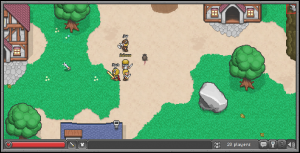This past Monday Mozilla opened their very first “GameOn” competition, as a way to promote their own products (how about Firefox and their upcoming Firefox OS) but also as a way to promote web-based games and the technologies that make it possible…. HTML, CSS, JavaScript, but also other open options like WebGL and WebRTC.
A competition divided in three categories:
– Best hackable game (where any player can remix game mechanics, fork code, or use assets from the web to create their own version.
– Best Multi-Device game … to “explore” concepts like asymmetric gaming, alternate reality games, and companion apps
– And best Web-only Game (for games that can only be played on the web).
And what do winners get? Besides grabbing get a Nvidia GeForce GTX670 if you’re one of the 3 category winners there will be a special prize for the “Grand Champion”… an all expense paid trip to San Francisco for GDC 2013 with hotel accommodation, tickets to the GDC …and a large etc. Sounds about fair.

You’ll have to submit your playable prototype by Feb 24 built using open web technologies and the game should run plug-in free on the browser of course. And to get things started properly they’re organising 2 simultaneous game jams in New York and London this weekend (apparently more are coming later on) so if you’re around…. (more info here).
Rules and more info on the GameOn website.


